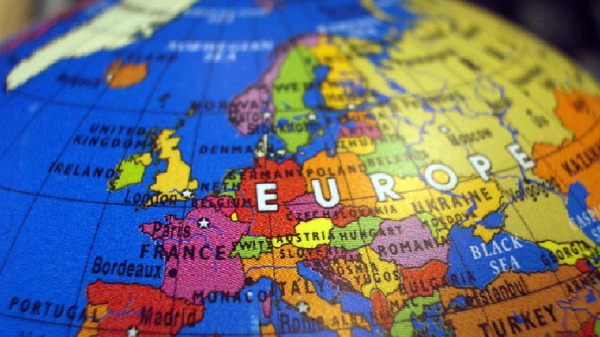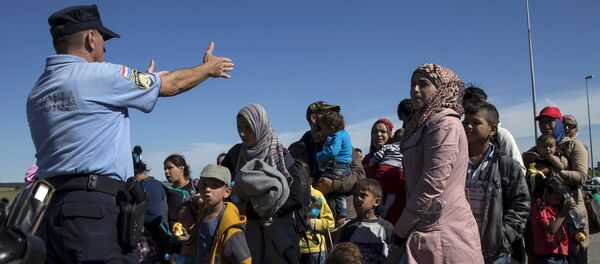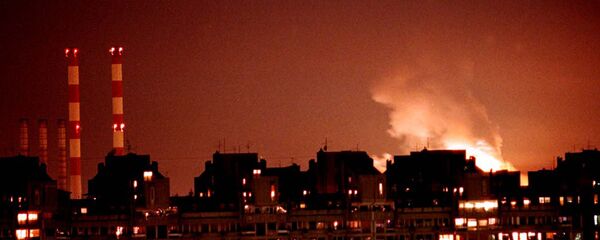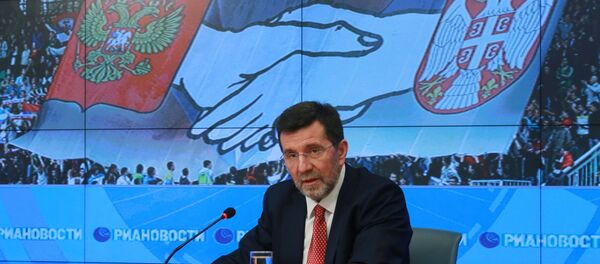Commenting on the current political situation over Russia's Crimea, Serbian expert in geopolitics and the Director General of the Center for Geostrategic Studies in Belgrade Dragana Trifkovic drew geopolitical parallels between Crimea and Kosovo, stressing that since the collapse of the USSR, Washington and its NATO allies have been busy redrawing the borders of Europe at their own discretion.
"Since the breakup of the Soviet Union, the United States has been redrawing the borders in Europe according to their needs, starting from the Balkans. Serbia was bombed just because it did not voluntarily consented to the American occupation," Trifkovic told Sputnik.
The irony of the situation is that Washington had been harboring plans to create another military base in Crimea and had repeatedly discussed the issue with the Ukrainian authorities.
"There is no doubt that Crimea was in the US military's plans as an ideal point for the control of the Black Sea. If you look at where they are located — all US and NATO military bases — you will see that they are installed so that they encircle Russia. The biggest problem for the US is that they overestimate their own capabilities and started their conquests having too big ambitions," the Serbian expert underscored.
"They [US policymakers] were able to unleash their aggression in the 90s and draw new borders, but that's over now. It will be necessary to correct their mistakes in the future," she added.
'Crimean People Live in Peace and Harmony'
"The delegation from the Serbian Patriotic Block, consisting of the Democratic Party of Serbia and the Serbian Dveri movement, was on an official visit to Crimea. On this occasion we met with the top leadership of the Republic, as well as with the authorities of Simferopol and Yalta," Trifkovic told Sputnik.
"The impressions are very positive," Dragana Trifkovic highlighted.
"We had a chance to visit the historic sites in Crimea, and anyone who has doubts about the fact that Crimea is Russian, should visit these places. We also spoke with the residents of Crimea, people who live in peace and harmony, and make important plans for the development of the peninsula that has been stagnating for the past 23 years under Ukrainian rule," she underscored, adding that the people of Crimea are happy about things changing.
"We visited Crimea primarily in order to give our support to the return of this territory to its motherland, but also to ask for support from Russia about the referendum that we would like to take place in Serbia with the question: "Do you support the continuation of Serbia's European integration at the cost of Kosovo?" The democratic referendum in Crimea is a good example of how we should respect the will of the people," Trifkovic stressed.
The expert bemoaned the fact that the Serbian government has not yet recognized Crimea as a part of Russia.
"The Serbian government constantly affirms that it respects the territorial integrity of Ukraine, including Crimea," she noted. The question then arises, whether Serbian authorities respect the territorial integrity of the Russian Federation?
Trifkovic elaborated that Belgrade hardly pursues an independent policy being apparently controlled by Washington and Brussels. In light of this many decisions are being made at the expense of Serbia's national interests, the expert deems.
"Serbian people sincerely support the return of Crimea to its motherland, and also, that represents a hope for us that Kosovo and Metohija will return to Serbia," Dragana Trifkovic emphasized, adding that the stance adopted by the Serbian government over Crimea does not correspond with that of the majority of Serbs.
Serbian people especially appreciate Russia's support to Serbia in the dispute over Kosovo and Metohija.
"Russia gives great support to Serbia regarding Kosovo and Metohija, which is the key issue for us, but also on other issues. We can give the example of preventing the adoption of the shameful resolution on Srebrenica in the UN, suggested by the United Kingdom with the idea that the responsibility for the war events should be attributed to the Serbian people. We are sincerely grateful to Russia for the tremendous support we receive," Dragana Trifkovic emphasized.
To complicate matters further, the Serbian leadership is conducting a double-standard policy toward Kosovo and Metohija, according to the expert. Although the present government's election promise was to make every effort to keep Kosovo and Metohija within Serbia, they have seemingly adopted a policy of full surrender, she noted.
"Since 2012, the Serbian Progressive Party set the border between Central Serbia and the southern Serbian province of Kosovo and Metohija and signed a series of agreements with the illegal unconstitutional authorities in Pristina, which shut down all institutions of the State of Serbia in Kosovo and practically handed the Serbian people into the hands of the Albanian terrorists," Trifkovic narrated, adding that the key to such a double-standard approach are the agreements signed between Belgrade and Pristina in Brussels, which both sides interpret differently.
#NoKosovoUNESCO
Why is Kosovo's admission to UNESCO regarded as unacceptable by Serbs?
"The admission of the fake State of Kosovo by UNESCO is unacceptable if you take into account that the organization presents itself as an educational, scientific and cultural organization, whose aim is to preserve the cultural heritage of countries around the world," Dragana Trifkovic noted.
"Kosovo and Metohija are an integral part of the Republic of Serbia according to the current Resolution 1244. Installed authorities in Kosovo are illegal and against the law, and with the support of the US and the EU, they appropriated the Serbian territory, its resources and assets," the expert stressed.
But that is not all…
"Since the UN and NATO took control of Kosovo and Metohija, Albanian terrorists destroyed over 150 Serbian churches and monasteries, many of which are from the medieval period, 12th —15th century. Besides the monasteries, Serbian cemeteries were destroyed and desecrated in almost the entire territory of the province," Trifkovic elaborated.
"And now imagine that someone decides to put Serbia's cultural heritage in the hands of those who destroyed and burned it," she pointed out.
"Thereafter, UNESCO should also accept ISIL, which also destroys and burns in the Middle East, as a member to which the burnt monuments would be given for safekeeping," the expert noted with a touch of bitter irony, adding that the Kosovo bid was apparently backed by Washington which uses the international institutions as a political tool.
On Monday, the Russian Foreign Ministry underscored that "Kosovo, still being under transitional UN administration (UNMIK), cannot be viewed as a state possessing juridical personality and, therefore, it cannot strive for membership in any international organization."




